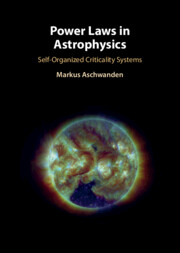16 - Conclusions
from Part III - Conclusions
Published online by Cambridge University Press: 05 December 2024
Summary
Research in “complex physics” or “nonlinear physics” is rapidly expanding across various science disciplines, for example, in mathematics, astrophysics, geophysics, magnetospheric physics, plasma physics, biophysics, and sociophysics. What is common among these science disciplines is the concept of “self-organized criticality systems,” which is presented here in detail for observed astrophysical phenomena, such as solar flares, coronal mass ejections, solar energetic particles, solar wind, stellar flares, magnetospheric events, planetary systems, and galactic and black-hole systems. This book explains fundamental questions: Why do power laws, as hallmarks of self-organized criticality, exist? What power law index is predicted for each astrophysical phenomenon? Which size distributions have universality? What can waiting time distributions tell us about random processes? This book is the first monograph that tests comprehensively astrophysical observations of self-organized criticality systems. The highlight of this book is a paradigm shift from microscopic concepts (such as the traditional cellular automaton algorithms) to macroscopic concepts (formulated in terms of physical scaling laws).
Keywords
- Type
- Chapter
- Information
- Power Laws in AstrophysicsSelf-Organized Criticality Systems, pp. 207 - 217Publisher: Cambridge University PressPrint publication year: 2024

